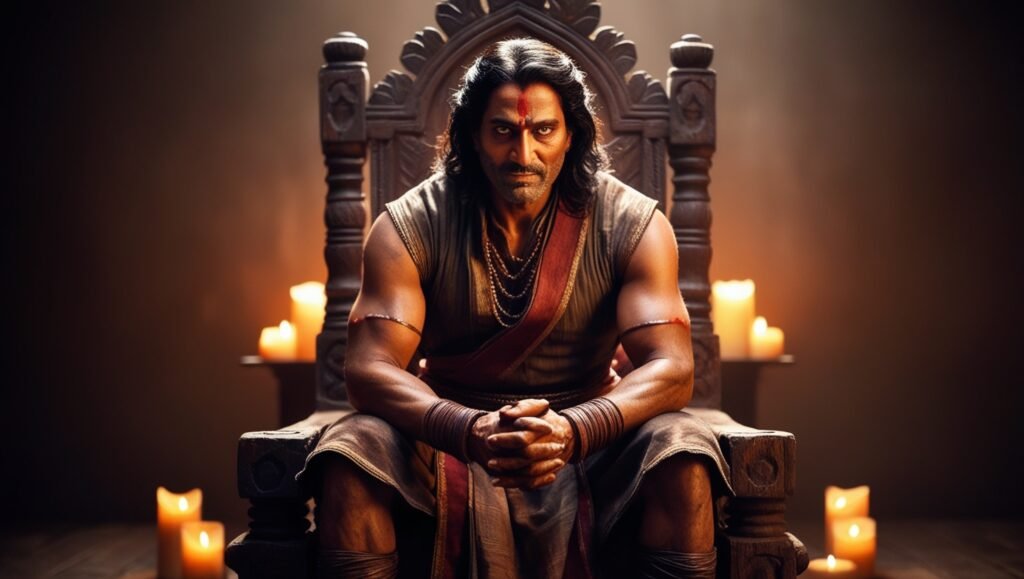The Mahabharata’s dice game is one of the most pivotal events in the epic, serving as a microcosm of human flaws like greed, ego, and impulsivity. This seemingly simple game of chance snowballed into a catastrophic war, claiming countless lives and forever altering the course of history. At its core, the dice game demonstrates how unchecked greed and hubris can have far-reaching consequences.
The Context of the Dice Game
The dice game was orchestrated by Shakuni, Duryodhana’s cunning uncle, as a strategy to strip the Pandavas of their kingdom and humiliate them. Invited to Hastinapura under the guise of a friendly competition, the Pandavas were unaware of the sinister motives behind the game. Yudhishthira, bound by his dharma to accept challenges, unwittingly fell into the trap.
Yudhishthira’s Flawed Judgment
Despite being wise and virtuous, Yudhishthira’s decision to gamble reveals his human vulnerabilities. His attachment to the idea of honor and his belief in dharma made him susceptible to manipulation. Each roll of the dice not only deepened his losses but also eroded the moral fabric of the royal court. He gambled away his wealth, his kingdom, his brothers, and eventually, Draupadi.
Draupadi’s Humiliation: The Turning Point
The climax of the dice game came when Draupadi, the wife of the Pandavas, was staked and lost. Her public disrobing attempt in the royal court marked the height of the Kauravas’ arrogance and cruelty. Draupadi’s humiliation was not just a personal affront but a violation of dharma, evoking divine intervention and setting the stage for retribution. Her poignant questions about dharma during the court scene exposed the moral bankruptcy of the Kauravas.
Greed and Ego: The Triggers of Destruction
Duryodhana’s greed and desire for power were the driving forces behind the dice game. His inability to coexist with the Pandavas, despite having his own kingdom, reflects the destructive nature of envy. Similarly, Shakuni’s manipulation, fueled by his vendetta against the Kuru dynasty, highlights how personal grudges can ignite larger conflicts.
On the other hand, Yudhishthira’s inability to stop gambling, even as he lost everything, underscores the dangers of obsession and misplaced priorities. His flawed judgment acted as a catalyst for the eventual war.
The Aftermath
The dice game’s consequences were far-reaching. The Pandavas were forced into 13 years of exile, during which resentment and determination to reclaim justice festered. The seeds of the Kurukshetra war were sown in the gambling hall, making the war an inevitable result of the Kauravas’ unchecked greed and the Pandavas’ quest for justice.
Lessons from the Dice Game
The dice game serves as a powerful allegory for the dangers of greed, ego, and moral compromise. It teaches that actions driven by selfish motives can lead to ruin not only for individuals but also for entire civilizations. The Mahabharata urges readers to exercise self-restraint, uphold dharma, and resist the allure of fleeting pleasures.
In conclusion, the dice game in the Mahabharata is more than a story of loss; it is a cautionary tale about the devastating impact of greed and the importance of ethical conduct. It reminds us that every action has consequences, and the pursuit of power at the expense of morality leads only to destruction.



